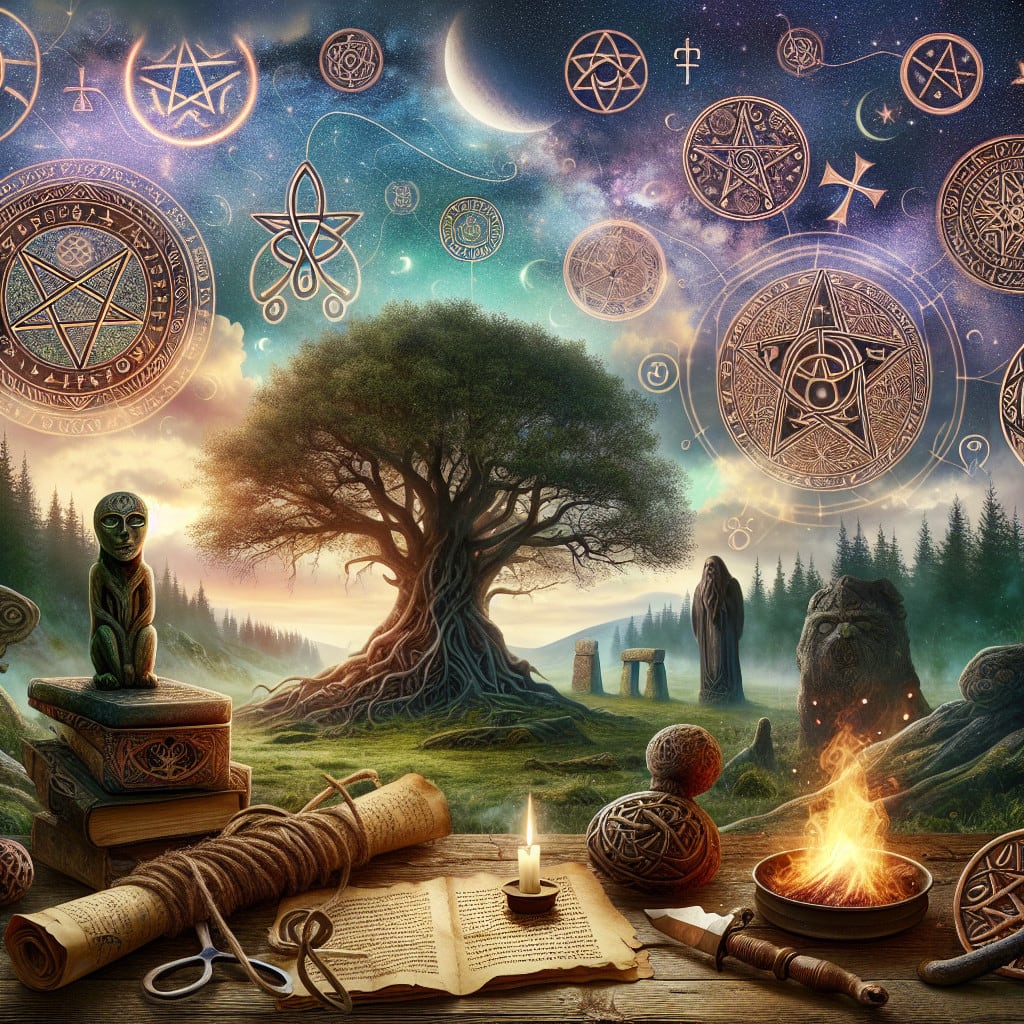The pagan beliefs are an ancient set of spiritual and religious beliefs that have been around for centuries. They have been practiced by many cultures around the world and have been the basis for many different religions. In this article, we will look at some of the most common pagan beliefs and how they are still relevant today. We will discuss the importance of rituals and symbols and explore the different ways in which pagan beliefs have been adapted by modern cultures. We will also look at some of the key figures in the pagan belief system and how they have helped shape today’s spiritual and religious beliefs.
Paganism is an umbrella term used to describe a variety of different religious and spiritual beliefs and practices that are rooted in pre-Christian, pre-Judaic, and pre-Islamic beliefs and traditions. It includes a variety of different traditions, including Wicca, Druidism, Shamanism, and many others. Although there are many different Pagan beliefs and practices, there are some shared core beliefs and principles that are common to most Pagan traditions.
What Do Pagans Believe?
Pagans believe in the interconnectedness of all things, the importance of living in harmony with the natural world, and the power of ritual and nature-based spiritual practices. They may also believe in the existence of multiple deities, often referred to as gods and goddesses, who are each responsible for different aspects of life. Pagans may also believe in the power of magic and the supernatural, and some may practice divination or fortune-telling.
The Practice of Paganism
Paganism is a practice, rather than a set of beliefs. Pagans practice a variety of rituals and ceremonies, which are often nature-based and involve seasonal changes, such as the solstices and the equinoxes. These rituals often involve the use of symbols and objects, such as candles, stones, herbs, and incense. They may also involve the making of offerings to nature spirits or deities, such as food, drink, or other objects.
Pagan Ethics and Values
Paganism is based on a set of ethics and values, which emphasize respect for the natural world, for oneself, and for others. Pagans strive to live in harmony with the natural world, and to live their lives with compassion and kindness. They also strive to be honest and open, and to respect the beliefs and practices of others.
Paganism and Religion
Paganism is not a traditional religion in the same way as Christianity, Judaism, or Islam, but it is a spiritual practice with its own set of beliefs and practices. Pagans may also be members of other religious traditions, and may practice their Pagan beliefs alongside other spiritual and religious practices.
The History of Paganism
Paganism is an ancient spiritual tradition, and is believed to have its roots in pre-Christian and pre-Judaic beliefs and traditions. It has been practiced in various forms throughout history, from the ancient Greeks and Romans, to the Celts and Norse, to present-day practitioners around the world.
The Pagan Community
Paganism is a global community, with practitioners coming from all walks of life. Pagans often practice in small, private groups, such as covens and circles, or in larger public gatherings. There is also an online presence, with many websites and forums dedicated to Paganism.
Paganism and the Law
Paganism is a recognized religion in many countries, including the United States, Canada, and the United Kingdom. In some countries, Paganism is protected under the law as a freedom of religion. In other countries, Paganism may be considered a superstition or a cult and may be subject to legal restrictions or even criminal prosecution. It is important to research the laws in the country in which you live before practicing Paganism.
Conclusion
Paganism is an ancient spiritual tradition with a rich history and a vibrant, global community. It is based on a set of ethics and values that emphasize respect for the natural world, for oneself, and for others. While Paganism is not considered a traditional religion, it is a spiritual practice with its own set of beliefs and practices. In some countries, Paganism is protected under the law as a freedom of religion, while in other countries, it may be considered a superstition or a cult and may be subject to legal restrictions or even criminal prosecution.
In conclusion, it is clear that pagan beliefs have been an integral part of human history, and they continue to be an important part of many cultures today. Paganism is an incredibly diverse belief system that can be adapted to fit any individual’s needs. It is a belief system that is based on respect for the natural world and a reverence for the divine. Paganism is a belief system that is open to all, and one that encourages personal and spiritual growth. It is a belief system that can provide comfort and joy to those who practice it, and can bring a sense of peace and understanding to those who seek it. Paganism is a belief system that is open to everyone, and one that encourages personal growth and understanding of the divine.





